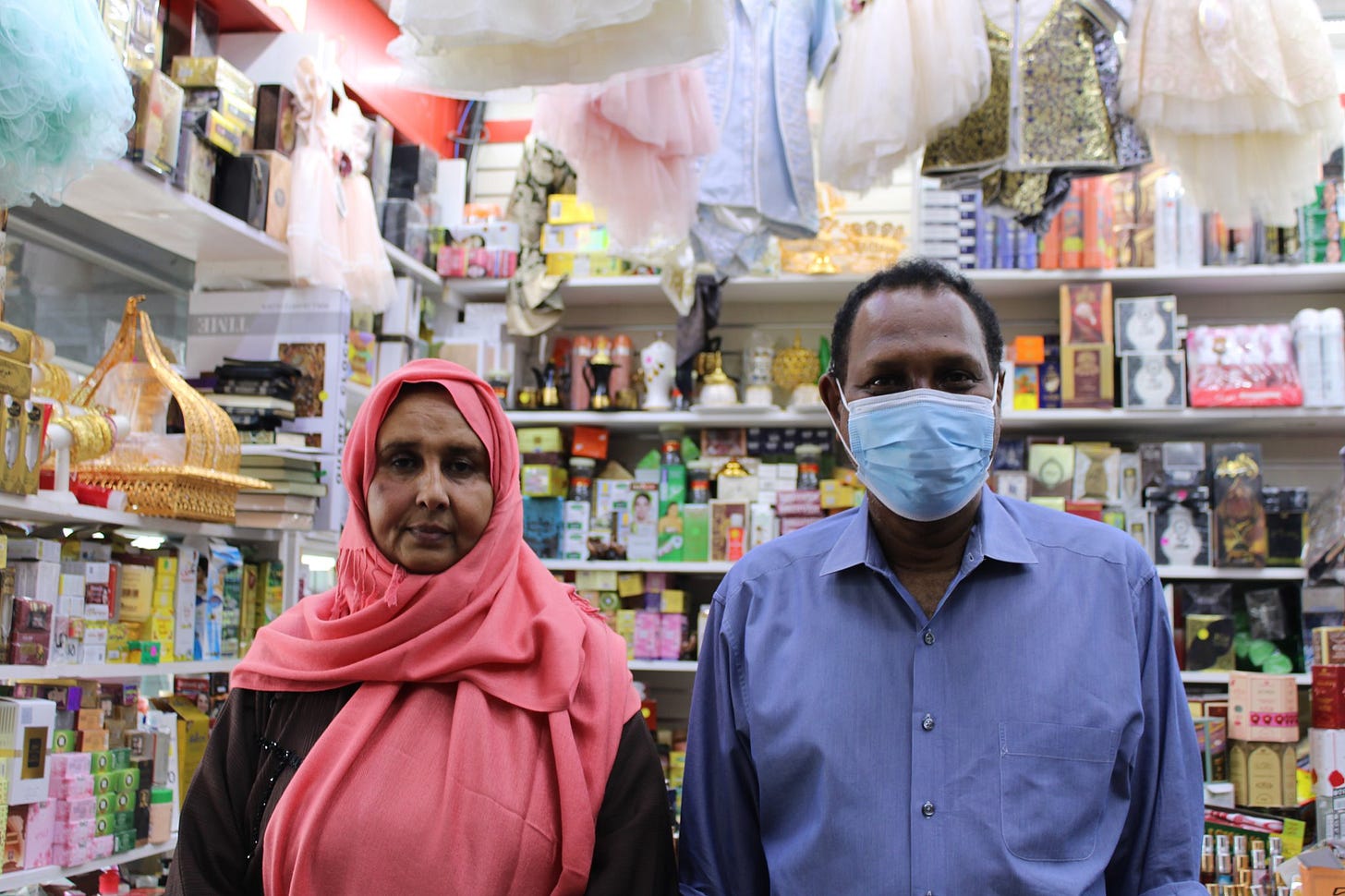Omar Shekhey is a lifeline for Somali immigrants in Atlanta.
"Right now the problem is the refugee servicing agencies...basically they don’t see our people, because of COVID. Everybody’s coming to me."
Omar Shekhey is a busy man. On any given day, at least 15 people walk into his small cramped office in the Somali Plaza strip mall in Clarkston, to ask him for help.
On Thursday afternoon, he was on the phone, trying to fix another problem. A young Eritrean man had shown up for an appointment at a government agency the day before, but wasn’t seen because he had brought his own interpreter, instead of a government appointed one. “How would he know this? It’s not his fault that he got there and there was no interpreter available…”
The man in question hovered by Omar’s desk, as Omar tried to untangle the problem and secure him another appointment.
This situation isn’t unusual. Omar runs the Somali American Community Center and in a regular, non-pandemic year, he says he serves around 1000 families, including, but not limited to Somalis. “We never send anyone away,” he said.
A lot of what he does is filling in the information gaps that come with adjusting to life in a new place. Need help with navigating section 8 housing? Accessing unemployment benefits? Paying your rent online? Go visit Omar Shekhey. And since COVID, his workload has multiplied.

“Right now the problem is the refugee servicing agencies...basically they don’t see our people, because of COVID. Everybody’s coming to me...because of language, because they don’t have zoom…everything is collapsed on me these last two years. I’m doing three times more than what I used to do.”
As Omar’s workload has gone up, his staff capacity has gone down. For years he had anywhere from five to ten people working at the center. But since 2018, it’s been just him, aside from “some volunteers from time to time.”
Omar left Mogadishu in 1984 to come to the U.S. to study at Georgia Tech. He arrived in Atlanta 1985, at a time when there weren’t many Somali families around. But in the early 1990s, when the political situation in Somalia intensified, an influx of Somalis started arriving in Atlanta.
Omar says there were around 20,000 Somalis in Georgia then, but a lot of those families didn’t end up staying. Many moved up north and to the midwest to places like Minnesota, Ohio, and Maine. “Atlanta was like a gateway...they were all here at the beginning, but everyone started moving out of the state...this state has less support for immigrants in education, housing…”
In 2008 he quit working as a mechanical engineer and founded the Somali American Community Center a year later. It started out as a mostly cultural organization, but expanded when he realized focusing on culture alone wasn’t enough. “Our people needed more. We started to do services - after school programs, health education, interpretation, helping with home ownership.”
Now, he says around 5000 to 7000 Somalis live in the Atlanta area and most of them have settled in Dekalb and Gwinnett County. For those that are here, he’s committed to making their lives smoother.
“It’s hard for a lot of Americans too, you can understand. Imagine if someone doesn’t speak English, can’t drive and depends on carpool to go to work at Tysons Chicken farm, where they only get 20 dollars an hour. It’s not easy.”
For those who have arrived recently, it’s even harder. “Newly arrived refugees are going to have a hard time. They won’t be able to afford rent. Jobs are far away - like in Gainesville or Jefferson county. It’s just tough. They can't move there because they don’t have the support of the community there, they don’t have a mosque, no language things there, they don’t have halal meat there.”
Somali Plaza in Clarkston.
But thankfully, he’s here for them. After lunchtime on Thursday, he was off to meet a newly arrived Afghan family, to help them with job placement, “there’s a janitor job at Emory, a job at Home Goods, and one at Amazon that I'm trying to secure for them.”






